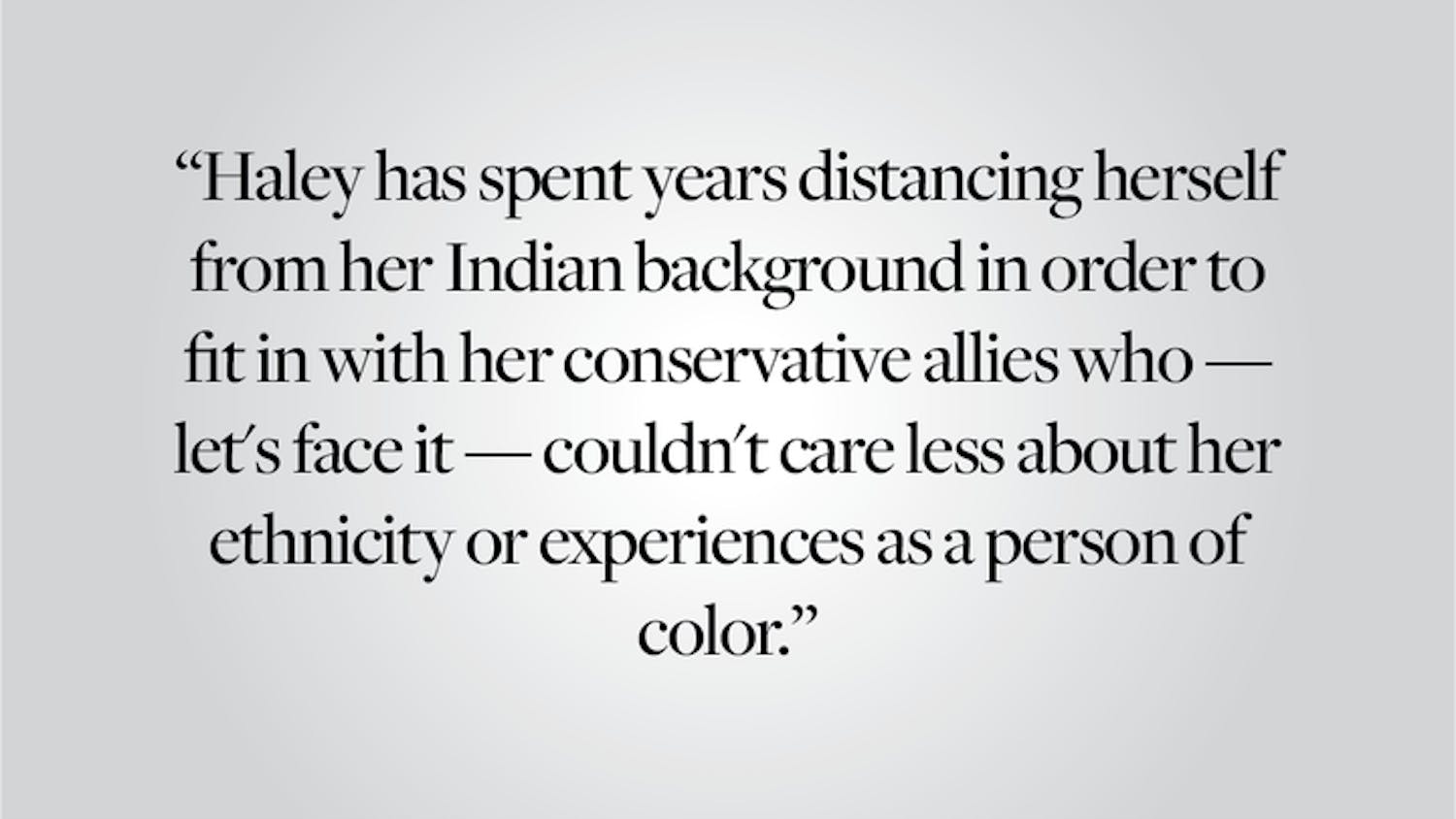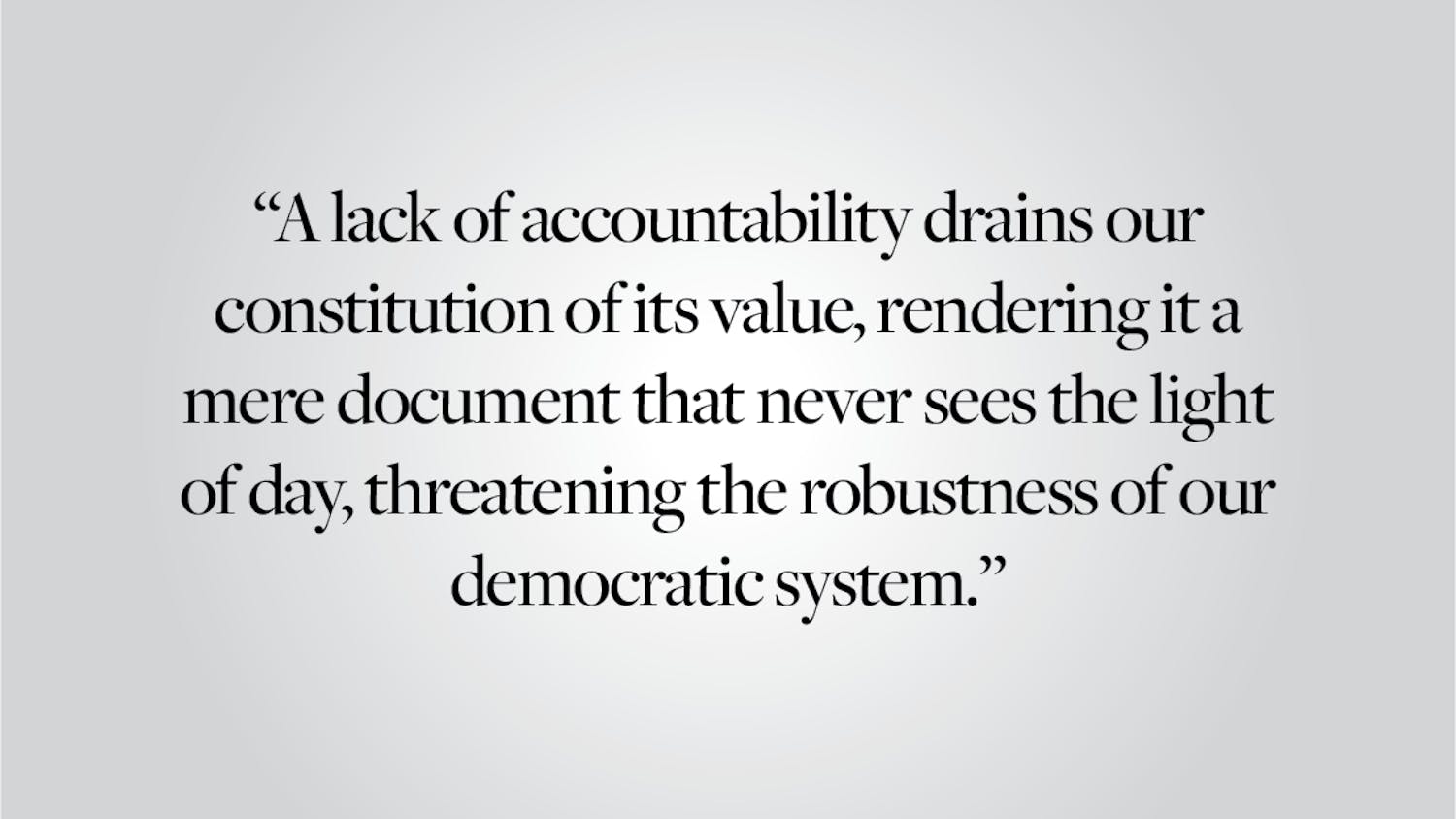A little less than a year ago, as part of a wider controversy surrounding racial tension at Princeton, student protesters demanded the removal of Woodrow Wilson’s name from campus institutions. Wilson — a Princeton alum, 13th President of the university and 28th President of the United States — is commemorated by the Woodrow Wilson School of Public and International Affairs and by Wilson College.
The students’ objections to his commemoration were not at all unfounded. Many pointed to the Wilson administration’s policies deliberately created to resegregate the workforce and deprive African-Americans of recently acquired political and social rights as reasons to remove his name. According to the New York Times Editorial Board, the “toxic legacy” of this “unapologetic racist” established “federal discrimination as a national norm.” These actions are undeniably morally reprehensible.
Like other critics, the Times’ Editorial Board unequivocally calls for the immediate rescinding of all honors that Princeton has bestowed upon Wilson. But while the intent of these protests is commendable, Wilson’s legacy, no matter how ugly, should on principle remain commemorated at the university. There are two primary reasons as to why: It is very important to honor the other more positive facets of Wilson’s legacy, and there is ideological and educational value in remembering his historical wrongs.
The Times’ Editorial Board never explores the reasons Princeton has continued to celebrate Wilson’s legacy. In 1896 and again in 1902, Wilson gave speeches at Princeton in which he coined the phrase that has now been amended to “Princeton in the nation’s service and the service of humanity,” Princeton’s unofficial motto. Wilson’s speeches demonstrate how his achievements relate to Princeton’s “educational mission.” The school took his name because those who named it believed Wilson’s achievements embody this mission — and for good reason. Wilson transformed the objective of American foreign policy to internationalism. His Fourteen Points helped establish the League of Nations, setting a tone of international diplomacy that now characterizes global politics. Domestically, he championed the progressive agenda, and his cohesive governmental programs for economic oversight, according to the University of Virginia’s Miller Center, “reflected a deep commitment to the humanization of the industrial system.”
These achievements do not excuse his racist policies. But by the same logic, his racist policies do not discredit these achievements. We cannot simply dismiss the historically significant and socially beneficial accomplishments of an individual on the basis that some of his other views or actions are incompatible with today’s ethical standards.
If we seek to eliminate honors for anyone whose actions, statements or views were widespread during their times but are now viewed as immoral, virtually every historical figure of, say, more than 50 years ago can be retroactively censured for a certain view that fails to comply with today’s moral standards. I challenge the reader to find any figure in our history who cannot be so counted. Martin Luther King, Jr. — idealized as the quintessential civil rights activist — also once called a boy’s same-sex desires a “problem” that he had “to deal with” and recover from, ideally by seeing “a good psychiatrist.” But it would be unheard of, and rightly so, to demand the removal of the MLK Jr. Memorial from the National Mall, for example. Thomas Jefferson’s legacy is as integral to the establishment of legally enforceable liberties in the United States as it is hypocritical in his participation in the industry of slavery. While we must remember these figures for their faults, their historical achievements nonetheless weave the fabric of our society and culture, and they ought to be commemorated accordingly.
More importantly, the preservation of Wilson’s namesake is essential to confronting the legacy of racism in our country. Issues of racial injustice are still prevalent in the United States, a fact that is inextricable from our history. Injustice stems from the oldest and most prominent of American institutions, including universities, and from some of the most prominent Americans, including presidents. To recognize the roots of racial bigotry and mistreatment as stemming from the very core of American society is essential in working to mend these injustices.
A similar controversy arose recently at Yale regarding the name of Calhoun College, named after John Calhoun, prominent 19th-century politician and defender of slavery. After much deliberation, Yale President Peter Salovey opted against the name’s removal, which he asserted would “(downplay) the lasting effects of slavery and (substitute) a false and misleading narrative, albeit one that might allow us to feel complacent or, even, self-congratulatory.”
It would be dishonest for Princeton to whitewash its history; on the contrary, it is very much educationally productive to embrace it. It may seem that universities hold on so tightly to these historical names merely for the sake of tradition and prestige; absent in this view is the ideological and educational value that there is in retaining these figures’ legacies, for all of their accomplishments and their faults.
Brown also deals with issues concerning some of the darker moments in its history. The foundings of New England, the state of Rhode Island and Brown were all tied deeply to the institution of slavery. Brown’s namesake is Nicholas Brown, who himself had no substantial connection to slavery in occupation, but his family did: His brother John Brown, for instance, was a merchant now infamous for his commercial transportation of African slaves. In 2003, then-President Ruth Simmons appointed a Steering Committee on Slavery and Justice, charged with two purposes: to investigate and to prepare a report about the University’s historical relationship to slavery and the transatlantic slave trade and to organize public programs that “might help the campus and the nation reflect on the meaning of this history in the present, on the complex historical, political, legal and moral questions posed by any present-day confrontation with past injustice.” This committee made its recommendations to the University in 2006, though students, faculty members and administrators still grapple with the implications of this history.
How to approach our historical legacies remains a complex and contentious topic, especially for a modern generation that seems more inclined than ever to disavow the values and traditions of its ancestors. Our society’s institutions, particularly its older ones, face this question when the morality of their historical figures cannot withstand the critical examination of a modern perspective. So if not to remove the names, how might universities genuinely and productively make reparations for historical wrongs? Georgetown University’s recently announced preferential application process for the descendants of slaves sold to finance the university and Brown’s Steering Committee of Slavery and Justice are examples of steps colleges have taken to atone for the institutions’ flawed legacies without erasing them.
James Flynn ’20 can be reached at james_flynn1@brown.edu.
Please send responses to this opinion to letters@browndailyherald.com and other op-eds to opinions@browndailyherald.com.




